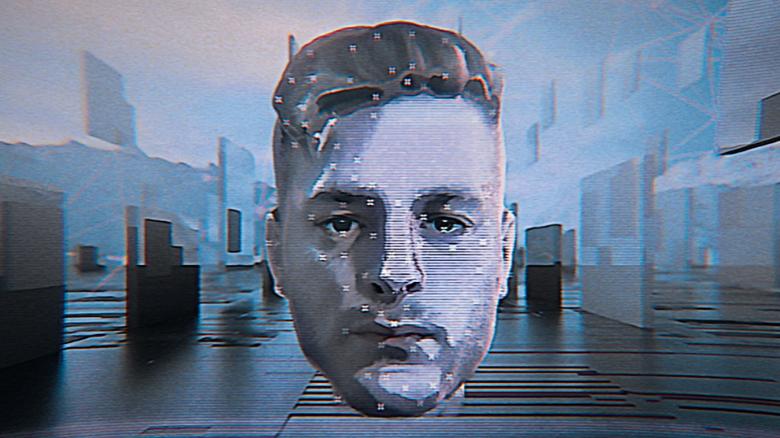(CNN)The American Civil Liberties Union has filed an administrative complaint with Detroit's police department over what the advocacy organization claims is the country's first known wrongful arrest involving facial-recognition technology.
According to the complaint, Robert Williams was pulling into the driveway of his home in Farmington Hills, Mich. one evening in January when a police vehicle suddenly drove up, blocking him in. Officers leapt out, placed Williams under arrest as his wife and children watched from their doorstep, and whisked him away to a detention center a half hour away in Detroit. There, he spent the next 30 hours in what his lawyers describe as a "crowded and filthy cell."
Detroit police believed Williams was responsible for stealing several watches from a local Shinola store. But it turns out the police were wrongŌĆöled astray by a computer algorithm, according to the ACLU. In a statement, the Detroit Police Department said facial recognition software is "an investigative tool that is used to generate leads," and that it requires "additional investigative work, corroborating evidence and probable cause" before making an arrest.
As the country reckons with decades of police practices that have disproportionately affected Black and brown communities, the incident hints at the personal toll wrought on average Americans by the rapid spread of facial recognition in policing ŌĆö and the outsized potential for such technology to misidentify people of color.
Facial recognition systems typically use software to match an image of a face with those stored in a database. The technology has been used everywhere from concerts to airports, but is increasingly being scrutinized by privacy and civil liberties advocates, technologists, and lawmakers over concerns about algorithmic discrimination.
Williams, who is Black, has now become a face of that movement. According to the ACLU's complaint, Detroit police provided the video surveillance of a Black man stealing watches from a Shinola store to Michigan state police, who ran the footage through a facial-recognition system and suggested a photo of Williams as a potential match. Shanon Banner, a spokeswoman for the Michigan state police, referred CNN's questions about Williams' case to the Detroit police.
According to Banner, Michigan state police policy is not to use facial recognition as a form of positive identification.
"It is considered to be an investigative lead only, requiring the investigator to continue the criminal investigation before making any final determinations, up to and including arrest," she said. "All investigative lead reports include the following statement at the top of the report: 'This document is not a positive identification. It is an investigative lead only and is not probable cause to arrest. Further investigation is needed to develop probable cause to arrest.'"
Banner did not explain how the software, allegedly sold to state police by a company known as DataWorks Plus, suggested the man in the video was Williams. Nevertheless, police then showed a lineup of headshots, including Williams's, to a Shinola security guard who hadn't witnessed the theft but had watched the video. The guard, the complaint says, identified Williams as the suspect.
Williams was subsequently arrested, though he was released after an interrogation during which, as the complaint says, "it became clear that his arrest was based on an erroneous facial recognition identification."
In a video produced by the ACLU about his experience, Williams said that once the officers interrogating him saw the pictures did not match his face, "they left them on the table and they looked at each other, like, 'oops.'"
"I never thought I'd have to explain to my daughters why Daddy got arrested," Williams wrote in a Washington Post op-ed Wednesday. "How does one explain to two little girls that a computer got it wrong, but the police listened to it anyway?"
The ACLU's complaint about Williams' experience follows announcements by several large tech companies that have said they will not sell facial recognition to police. Amazon has announced a one-year moratorium on sales of its Rekognition software, while Microsoft has said it will not sell its face recognition technology to police departments until federal regulations emerge. IBM, meanwhile, has announced a ban on "general purpose" facial recognition altogether, including research and development on the technology.
It's not known just how many local police departments use facial-recognition systems across the country, and there are few rules governing how and where it can be deployed. There is no federal legislation regarding its usage, though a number of states have enacted laws related to it. Illinois, for example, which requires companies to get consent from customers before collecting biometric information. And some cities, including Boston and San Francisco, have banned the technology for use by their governments.
With its complaint, the ACLU said, Williams hopes the Detroit Police Department will, among other things, publicly apologize to Williams and his family. The complaint also seeks all records from the department related to Williams' arrest, and calls on Detroit police to stop using facial recognition as an investigative tool.
In the surveillance footage used by police, the real suspect wore a St. Louis Cardinals hat, according to the complaint.
"Mr. Williams, a lifelong resident of the Detroit area, owns no such hat, and is not a Cardinals fan," the complaint said. "He's not even a baseball fan. He is, however, Black."







